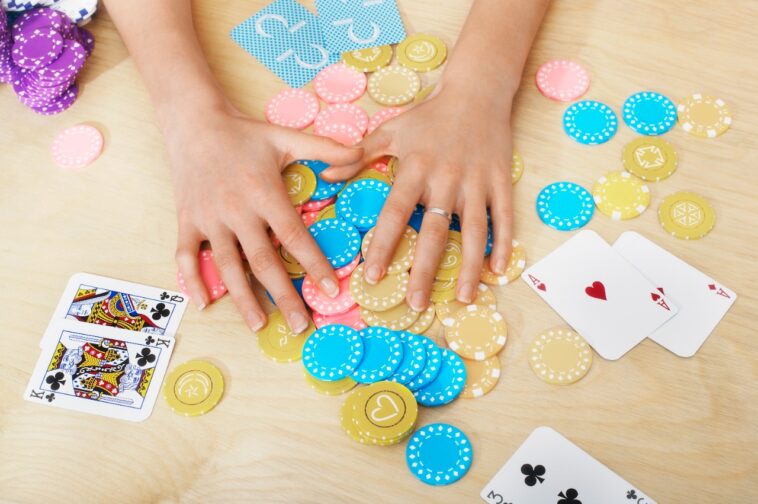What is insurance in blackjack? in this blog we explain it to you
Blackjack insurance is a side bet offered to players when the dealer’s up-card is an ace, as protection against the dealer’s hand being a blackjack.
It pays out 2/1 on blackjack insurance bets and the maximum bet is typically half of the player’s primary bet.
In the event that the dealer has blackjack, the player may be able to break even, even if they lose their main bet.
Before the dealer checks their hole card (the card that is not visible to the players), insurance is offered and paid out if the hole card has a value of 10, making two cards equal 21.
Blackjack insurance when to take it
The insurance option may seem attractive to a player if the dealer’s up-card is an ace, since there is a close to one-in-three chance that their other card has a value of 10.
Unless you are an excellent card counter, insurance is likely to be a losing bet in the long run.
To win your insurance bet, the dealer must have a 10-value card as his hole card. Card counters can keep track of the remaining cards and determine when there are enough to make the percentage call on insurance.
Why insurance should generally be avoided
In the following example, we demonstrate why, even in the best-case scenario, betting blackjack insurance would result in a loss in the long-term.
- In a one-deck game, you are playing against the dealer and neither of the cards in your initial hand has a value of 10.
- The remaining 16 cards have a value of 10, which means your £10 insurance bet has the greatest chance of winning.
- You still appear to be in a position that will not be sustainable in the long run.
- It wins 16 times on average and loses 33 times on average for a £10 insurance bet. A win is worth £20, so a total profit of £320 results.
- The 33 losses, however, leave you with a total loss of £10.
Due to the fact that neither you nor any other players have 10-value cards in their hands, this is considered the best case scenario. If this were the case, the dealer would significantly decrease your chances of winning your insurance bet if he had a 10-value hole card.
Almost everything can be insured these days: your car, your boat, your house, and even your life. Also, you can buy insurance at casinos – whenever you sit down at a blackjack table.
There is a slight difference between this insurance and the first. The idea of insuring investments is rarely contested, but many do not think it is a good idea to insure wagers. The most controversial topic in blackjack is insurance, if you hang out with gamblers long enough. It’s time to take a closer look.
Insurance is basically a side bet that the dealer has blackjack. Like any side bet, it is independent of the original wager. The option is only available after the initial cards have all been dealt, and only if the dealer has an ace. A half wager must be made to take the option. The insurance bet pays out at 2 to 1 odds if the dealer has blackjack, meaning you break even. The insurance bet is lost if the dealer does not have blackjack.
Nowadays, you can insure anything: your car, your boat, your house, even your life. At casinos you can also buy insurance when you sit down at a blackjack table.
There is a slight difference between this insurance and the first. The idea of insuring investments is rarely contested, but many do not think it is a good idea to insure wagers. The most controversial topic in blackjack is insurance, if you hang out with gamblers long enough. It’s time to take a closer look.
The insurance bet is essentially a side wager that the dealer has blackjack. The insurance bet plays independently of the original wager. If the dealer shows an Ace, the option becomes available only after all the initial cards have been dealt. If you choose to take it, you must wager half your stake. You win the insurance bet if the dealer has blackjack, usually at odds of 2 to 1 – meaning you break even on the hand. The insurance bet loses if the dealer does not have blackjack.
READ ALSO
which type of life insurance policy generates immediate cash value



